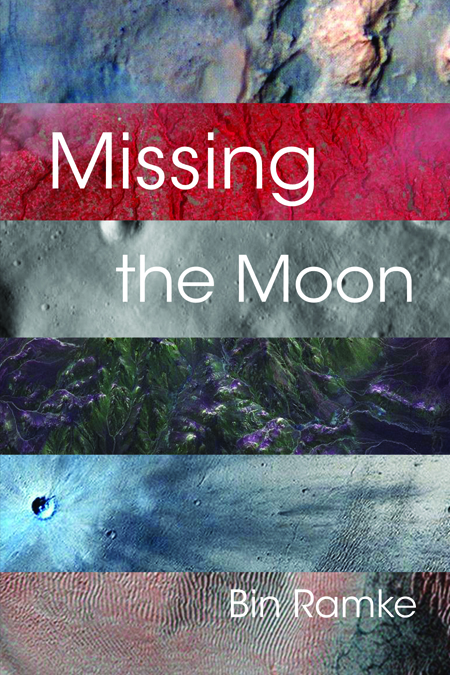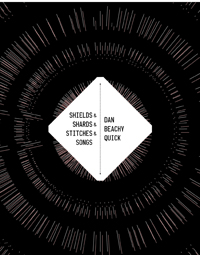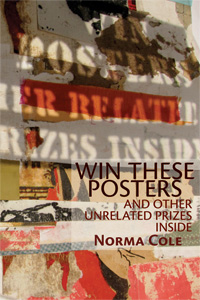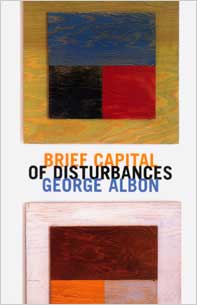Description
Attempts to reach the moon, metaphorically and otherwise, are an ancient element of human imagination. With intrusions from mathematics and science, these poems are elegiac celebrations of various ambitions that miss the mark, but matter anyway. The poems sometimes center on events in the life of the poet or members of his family, sometimes they center on historical figures reimagined—from Giacinto Scelsi to Alan Turing. But these poems are all always about boundaries and barriers, crossed sometimes, ignored at peril. They are about distances that must be travelled.
The poems in Bin Ramke’s new book enact the ceaseless struggle between containment and flow, garden and river, body and time. Fascinating as moving water, these poems allow “particulate sand its say.” They do what Alfred North Whitehead said literature should do: they embody what they indicate.
Rae Armantrout, author of Just Saying
The ethic and the aesthetic are one, opined Wittgenstein, meaning both address the unsayable. In Missing the Moon, Bin Ramke addresses the unsayable as that which must be said, but said as a proposition, a promenade. The warp and weft of these poems create a field of the unknowable that is as bright and haunting as its lodestone.
Vanessa Place is CEO of VanessaPlace Inc., the world’s first poetry corporation
Bin Ramke’s work is unique in world poetry in English… The ability to mix different registers of language—from the colloquial and immediate, the found and culturally apt (TV talk through to crime novels and “high” canonical literature), through to the scientific and philosophical—is perhaps not surprising in a modern American poet, but the deftness and fluidity of his approach are astonishing. I mean, seriously gifted.
John Kinsella, SPATIAL RELATIONS, VOLUME ONE: ESSAYS, REVIEWS, COMMENTARIES, AND CHOROGRAPHY
About the Author
Reviews
Excerpt
Bin Ramke grew up in Texas and Louisiana; after graduate school in Ohio he taught for nine years in south Georgia. His first book was published by Yale University Press in 1979; his most recent, AERIAL, by Omnidawn in 2012. He now teaches at the University of Denver where he holds the Phipps Chair in English and is an Evans Professor, and where he edited the Denver Quarterly for seventeen years. He teaches on occasion at the School of the Art Institute of Chicago. He edited over eighty books of poems for the University of Georgia Press.
“Much of my youth was spent in the bayous and marshes of the Texas-Louisiana border among Cajun and German-immigrant relatives. When I moved to Colorado a quarter-century ago the effect of distance caused me to realize that regions and regionalisms are intense, energizing, agonizing necessities. Geography, geology, and the histories accrued by local residents, human and otherwise, are what poetry must come to terms with, must provide terms (words and chronologies) for. Even though I don’t think of myself as writing ‘about’ either the festering humidity of the one region, or the desiccating aridity of the other, I am haunted by the phrases and intonations of the people who breathe those airs and turn landscapes into properties.”
A brief interview with Bin Ramke
(conducted by Rusty Morrison)
The title Missing the Moon has so many connotations. Can you speak about how the title came to the work, and why? In answering this you might also answer: how did this book begin? which were the first poems you wrote? when did the project begin to cohere for you?
As with all my previous books, this one began as a handful of not-consciously-connected poems which began to seem connected. First I thought the connection had to do with my old obsessions with mathematics—I thought the thing would be called “Figuring,” suggestive both of nudes and of numbers. For a while it was “The Inconceivable,” since poetry does operate within the realm of pre-conceptual ideation, too—the inconceivable turning itself into the language. But ever since the “New” section of my New and Selected (Theory of Mind, Omnidawn) I have been semi-consciously making poems as if to be read by my deceased older brother who worked most of his life for NASA in Houston—he was an electrical engineer working with the Apollo program, which did not miss: it put human beings on the moon, and brought them back. I miss him. I missed opportunities to talk with him about his work. I miss the moon as object of desire, of that particular strange desire to walk there first, as part of an absurd, dangerous ideological contest—contestation, with the word’s emphasis on witnessing. We, the world, watched this project unfold, fail, succeed, then turn into a triviality. Like a life when viewed whole as part of a past, I suppose.
Poetry Foundation, in their description of your work, quotes you as saying “The sort of work I do is concerned with sound, but in a subtle, nuanced way. It’s a combination of personal imagination and experience—experience in an unrecognizable form.” I see in so many of the poems of Missing the Moon your intimate relation to sound. It is as though a word comes to you purely in sonic allegiance to the phrasing it follows, and yet you draw the whole into “nuanced” re-measure of meaning of often surprising relation. Can you speak to this process? Were there any poems that were particularly challenging for you when doing this sonic work? Is it through the sonics that you find experience unveiling its familiarity and opening the unrecognizable to you?
Your interesting phrase, “purely in sonic allegiance to the phrasing it follows” is half the process—the other half being the allegiance to etymology. Or not allegiance, exactly, in either case, but fragmentary exploitation of connections and suggestions that sound and history-of-use offer. Even the book title works in such a way—its alliteration suggests further connections and significance. Absence, loss, and failure are all suggested by the path “miss” has taken in the language; and we all miss the moon once per month (in its “new” phase); and then there is “lunatic.” But I should speak of more than the title. The “sound” you speak of is for me a quite intimate relationship to things made of words. The vibrations I feel in my own throat and tongue and teeth much more than how an audience, listener, might actually hear those vibrations through the air. As I mentioned, I now believe this work was subconsciously intended to be heard by my brother who died in Houston as Hurricane Katrina made landfall in New Orleans. Missing the Moon is a sort of dialogue after the facts. And by “after” I mean all its meanings.
Although I want to avoid a reductive to attempt to summarize your signature approaches to writing, I can’t help but want to raise something you are “famous” for: your fascinating inclusion of such a range of science, mathematics, literature and history in your poetry books. What has especially delighted me in Missing the Moon, and in your last two books, Tendril and Aerial, is the way that you’ve contextualized this referencing and risked exposing such intimacies of personal experience. You make vulnerable a speaking agent struggling with some of the largest questions of the human experience, even as you canvas incredibly disparate, always delightful source materials. How do you perceive this aspecting in your work? Would you agree with me? I am so often stunned by the courage of Missing the Moon, by the agency’s exposure of culpability. How do you perceive this? How did these poems evolve?
I may have inadvertently spoken of some of this in response to your previous question. And I am surprised by my answers there, and by how that inclusiveness you speak of became so personal, even emotional, in this book. I don’t mean to be elusive, but I want to allude here to what is known as the three-body-problem (I keep reading about it in biographies of Henri Poincaré)—the challenge was to predict the relative positions of moon, earth, and sun, their mutual gravities restricting each other’s movements, at some future date. You can see how this can become a figure for human relationships. What was the third body whose gravitational field Ken and I were caught in? Family? Conflict between “science” and “art,” between ambition and family?
Would you tell me a bit about yourself? Anything about you that is not in the bio printed in the book, and that might give insight into your more personal relationship to this text?
I sometimes think I grew up watching two families in a sort of Southern Gothic process of decline. My mother’s branch of the Guidry name (common in south Louisiana) ended when her only brother died childless. My father’s family seemed to be thriving all through my childhood—most of his nine brothers and sisters, but not my father, moved back to the farm after they retired from various professions—the road leading to that spot on Vermilion Bayou was named “Ramke” by the post office—and then, after Katrina and Rita, 2005, the last of my father’s generation were scattered into surrounding states, geographically and emotionally. But I observed all this from a distance, geographically and emotionally. And I do think under various guises and disguises similar processes are reflected in this book. Maybe that three-body-problem is at work here, too—if you add more bodies (several moons, let’s say, or double suns surrounded by planets with their moons) the calculations become impossibly complex. My own situation is three—Linda and our son Nic and me, for decades quietly spinning around each other, watching the worlds around us.
Who are the authors or artists or musicians with whom you feel a kinship? Who are you currently reading, watching, hearing?
These may be two separate questions. At any rate at the moment I am reading Caroline Herschel: Priestess of the New Heavens, along with Maurice Blanchot, sort of bunches of his works alternatively and simultaneously (mainly The Writing of the Disaster). I was late to discover Giorgio Agamben, but I do feel a kinship, from a sort of a poor-relation perspective—recently I discovered his The Open… Oh and I read everything by China Miéville—I am currently in my second reading of Embassy Town, an astonishing science fiction study of language at the edge of meaning.
I listen to all the strange new worlds of music my son introduces me to—an astonishingly rich world of sound is out there where pop, ethnic, classical, etc. no longer come near describing what is happening. But especially I am intrigued by Arvo Pärt and other composers who attempt to respond to the sacred impulse in the midst of nonbelief.
Three poets I am currently reading with deepening gratitude are Hazel White (Peril as Architectural Enrichment), David Mutschlecner (Enigma and Light), and Helene Cardona (Dreaming My Animal Selves). Oh, and I have just started Benoit B. Mandelbrot’s memoir, just out in paper The Fractalist, which is a delight.
You chose the image that is used in the cover design for this book. Can you talk about your reasons for your choice?
It is beautifully elegant in its “truth.” It is a self-portrait, a view from the spacecraft Messenger 61 million miles from earth, looking back at us and our moon. The mission of Messenger was to search for satellites of Mercury. The date of this photograph was the 40th anniversary of the Apollo 11 landing on the moon. What I like about using this image for this book has to do with the act of observation, with the difference between assumptions about seeing as an act of imagination and seeing as an escape from imagination. Seeing is not believing. It is a lot more complicated than that. But seeing is a good idea, and is the basis of poems, which have relationships with truth, or at least flirtations with it.
If, as Ramke writes, “a poem is always an image of water,” then the title’s double meaning aptly characterizes the liquid interaction between language and comprehension that guides his poems into deeper, if no less mysterious, avenues of perception (“all things lie/ hidden within clouds of things”). Darkly enchanting, these meditations span a broad swath of ostensible subjects, from chemistry to theology, but always they ground themselves in the imagery of a world we know, or at least think we know.
“Old mistakes, made often enough, become/ a kind of wisdom; go figure,” writes Ramke (Aerial) at the close of his 12th collection. Indeed, it spoils nothing to begin there, as this is a book full of wise figuring with the advantage of hindsight. Ramke combines his fascination with the language of science and mathematics with lyrical riffs on the uncertainty that attends us as beings inseparable from time and space, speaking in a voice marked by kindness and awe: “A bloom is a blessing because.” Gentle and generous, the intelligence in these poems is powerful but soft spoken: “I am aware that all things lie/ hidden within clouds of things.” Rather than clearing the clouds away in search of answers, here wisdom comes in the form of the poet’s eagerness to regard those clouds with wonder: “How wide a lake a/ single cloud might make,/ how blue a shape.”
This interpenetration of subjects reflects Ramke’s attention to what holds things together—how a syllable or phoneme forms the kernel of “meaning,” and that it is his job as a poet to sow that kernel in as many different terrains as possible. His trust in sound reflects a trust in nature and an understanding that the human is a part of the world, forever involved in a conversation that “allows particulate sand its say: / say its sound, susurrant.” The echo of the “s” sound in these lines is one of many instances in which these poems are led by sound and movement, trusting that “meaning” lies therein.
Missing the Moon speaks to and for a forgotten people, exposing the not-so-distant remnants of this Americanization. It exists as an archive for the voiceless, rewriting history through displacement, and exposing the raw nerves resting quietly under the surface of the swamp.
There are many moons, the physical moon and the imaginary moon, the moon on which people have walked and the moon on which people have wished, the moon that affects tides and the moon reflected on a lake. Most of the time, we are not aware of the abstract laws that govern our every moment, and we don’t often think of ourselves as “little chemistry sets” who “leak, lyrical and lifelike.” However, there is a “teeming” all around us, and we, too, are part of that teeming, and once in a while, we observe ourselves observing. As Ramke writes, “No two observers see / the same twinkle, though they see / the same stars.” “It is a dance // light dances because we breathe,” he writes. It is this dance that Ramke examines even as he performs its steps in Missing the Moon, a dance in which “we look / and we breathe and we move / and we wait for rain, for the return / of that which is worth fearing / Worth revering.”
…Ramke mingles facts, in a very conversational tone, with more metaphysical material. It’s a cliché to say that poetry is about the unspeakable, the inexpressible, but there is something appealing in the way that Ramke tackles it, both personal (the moon is ‘our sister’), intriguing (‘a breath of River / in a secret repertoire’) and made wider (‘we hold in common’…).
MEAN ALSO MEANS
By a predicabile Albertus Magnus means:
a thing of which something is or can be said.
I Ching says:
A bird takes flight, leaving its call behind.
Fortune means telling, tallying
the means of profit, of prophesy.
Here we are again, aging
against each other. There was one
once who made just and gentle plans.
This was in the time of the birth
of the gods. Meaning came later,
meanness.





